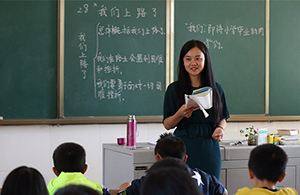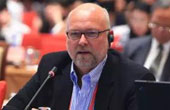2030 可持续发展议程(2030 kěchíxù fāzhǎn yìchéng): 2030 Agenda for Sustainable Development
(China Daily) Updated: 2016-09-22 08:06The 2030 Agenda for Sustainable Development is a momentous development agenda adopted by 193 UN members at the United Nations Sustainable Development Summit in September 2015 at the UN Headquarters in New York.
The agenda adopted by the UN marks a new era of sustainable development, and aims to end poverty and hunger, promote equality and protect the environment in the years leading up to 2030. It is a plan of action for people to save the planet and achieve prosperity. It also seeks to establish permanent universal peace.
The agenda's 17 goals cover a wide range of issues, including poverty, hunger, healthcare, education, gender equality and environmental protection. The 17 goals and 169 targets will stimulate action until 2030 in areas of critical importance for humanity and the planet.
The goals and targets seek to build on the UN Millennium Development Goals and complete the unfulfilled MDGs. They seek to guarantee human rights for all and the empowerment of women and girls. Integrated and indivisible, they balance the three dimensions of sustainable development: the economic, social and environmental.
The agenda will also help the international community and governments to promote shared prosperity and well-being.
During his visit to the UN Headquarters, Premier Li Keqiang hosted a roundtable on the Implementation of the 2030 Agenda for Sustainable Development: Global Process and China's Practice, where he said Beijing has approved a road map for implementing the 2030 Agenda for Sustainable Development.
Besides, China will continuously boost its aid to the UN development to achieve the long-term goal of the 2030 Agenda.

Colombian coffee has a story that I admire and use in my lectures and the reasons are the ones listed above. Congratulations!











